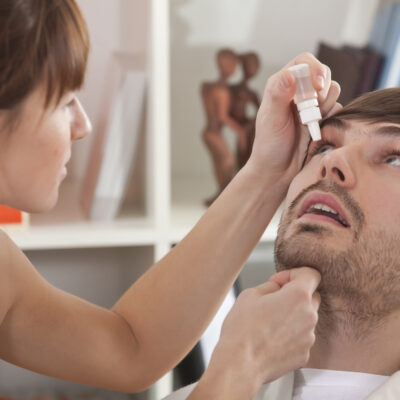
Common causes of a migraine
A migraine is a recurring, extremely painful headache. It is, at times, accompanied by nausea and vomiting, and extreme sensitivity to light and sounds make it worse. It could last for a few hours or remain for a few days. The symptoms of migraine could vary from person to person.
Though the exact cause of migraines is still unknown, studies show that the major factor causing this headache is an underlying central nervous disorder, irregularities in the brain blood vessel system or vascular system, an imbalance of certain brain chemicals, and also inherited genes. Many other factors are also likely to cause a migraine.
Some of the common causes of migraine are as follows:
- Genes – When there is a family history of migraines, it is passed down in the genes.
- Age – Though a migraine may attack at all ages, teenage is when it is likely to occur first and reaches a peak at 30 years.
- Gender – Women are three times more likely to be affected by migraine than men.
- Nerve signals – The trigeminal nerve in the head, which helps to feel sensations is the pathway for pain.
- Brain chemicals – When a migraine starts, serotonin levels drop, releasing chemicals called neurotransmitters to the brain which cause pain.
- Emotional stress – When going through emotional stress, the brain releases a chemical which causes a fight or flight response to the situation. Anxiety or tension aggravates the migraine.
- Changes in hormone level – In women, changes in estrogen levels trigger a migraine. It is worsened by birth control pills or hormone replacement therapy.
- Sensory overload – In some people, exposure to harsh or bright lights, very loud sounds, and strong smells trigger severe headaches.
- Foods – Certain foods that are salty like processed foods and old cheeses like blue cheese could cause a migraine. Also, aspartame (artificial sweetener) and monosodium glutamate (flavor enhancer) could cause it.
- Avoiding meals – Skipping a meal is not advisable in any case as it could lower blood sugar levels and cause a headache.
- Caffeine and alcohol – Caffeinated and alcoholic drinks are known to be migraine triggers.
- Sleep pattern changes – A proper sleep is important to remain healthy. Too much sleep or lack of it could cause a migraine. Jet lag and changing time zones while traveling also triggers it.
- Changes in weather – To some people, even a slight change in climate or overall air pressure could start a headache.
- Excessive medication – Overuse of any medication including headache medicines could cause a rebound headache.
- Physical strain – It is best to be physically active and maintain good health, but over exercise and intense workout could cause a migraine. Moderation is the key.
Though it may be impossible to stop the onset of a migraine, the factors that trigger it can be controlled by maintaining a healthy diet, quality sleep, proper exercise, and stress management.


